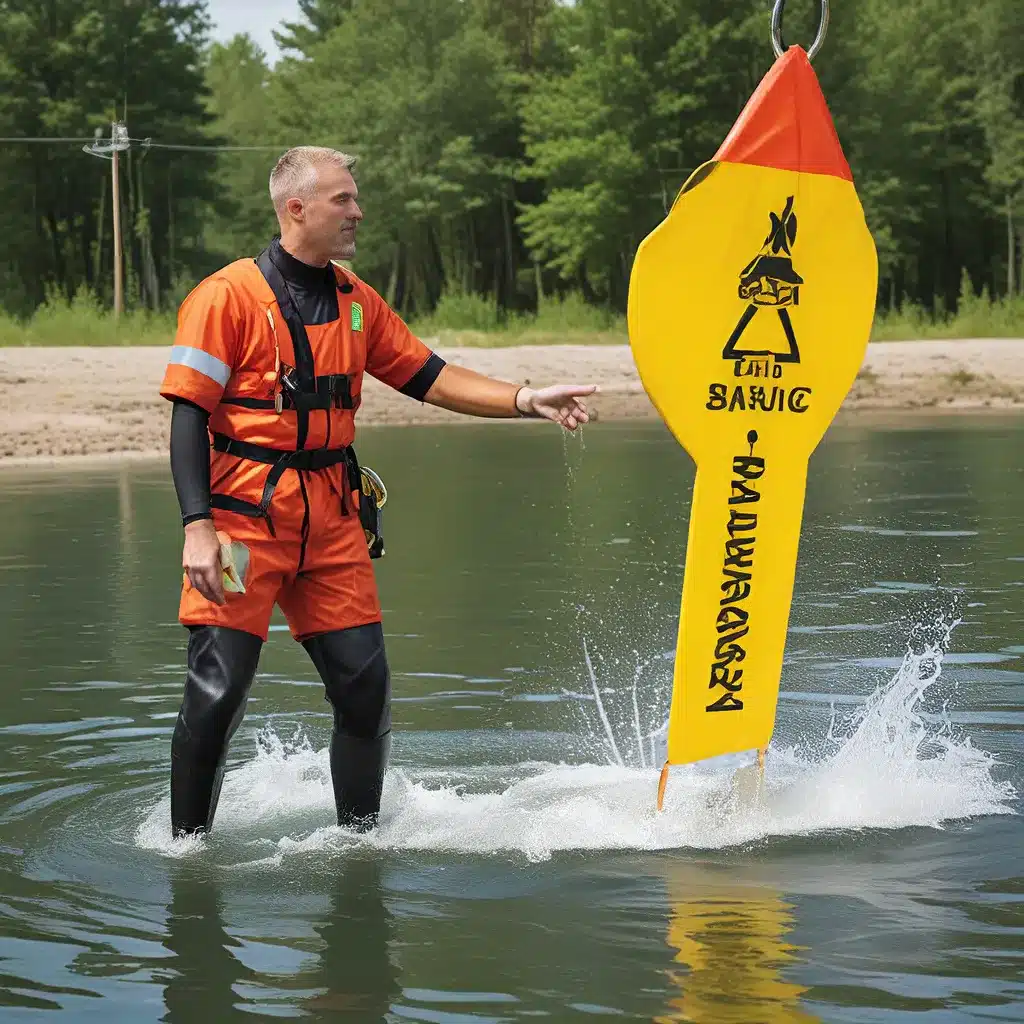
Keeping Our Water Secure: The Evolving Landscape of Water Treatment Training
As the world becomes increasingly interconnected, the importance of safeguarding our most precious resource – water – has never been more paramount. The water treatment industry, tasked with ensuring the purity and safety of our drinking water, is at the forefront of this critical mission. And at the heart of this endeavor lies the continuous pursuit of elevating water safety standards through innovative training techniques.
Let’s dive in and explore the latest trends and best practices shaping the world of water treatment training. After all, the well-being of our communities depends on the expertise and dedication of the professionals who safeguard our water supply.
Embracing the Digital Transformation
In an age where technology permeates every facet of our lives, it’s no surprise that the water treatment industry has embraced the digital revolution. Drone technology, for instance, has revolutionized the way water treatment facilities are inspected and monitored. These airborne marvels can access hard-to-reach areas, providing a bird’s-eye view of infrastructure and identifying potential issues before they escalate.
But the digital transformation goes far beyond drones. Online training platforms and virtual simulations have become indispensable tools in the water treatment training arsenal. Imagine being able to practice critical emergency response protocols or master the intricacies of water treatment processes without ever leaving the comfort of your desk. This shift towards digital learning not only enhances the efficiency of training but also ensures that water treatment professionals can stay up-to-date with the latest industry developments, no matter their geographic location.
Fostering a Culture of Continuous Learning
In the rapidly evolving world of water treatment, the importance of continuous learning cannot be overstated. Gone are the days when a single training session could adequately equip professionals for the entirety of their careers. Today, the most successful water treatment organizations have embraced a culture of lifelong learning, recognizing that the ability to adapt and innovate is the key to maintaining the highest standards of water safety.
This commitment to continuous learning manifests in a variety of ways. Regular refresher courses, ongoing skill assessments, and personalized professional development plans ensure that water treatment personnel are constantly honing their expertise. Additionally, industry-wide collaboration and knowledge-sharing platforms have emerged, allowing water treatment professionals to learn from their peers, share best practices, and stay abreast of the latest trends and technologies.
Embracing Diversity and Inclusive Training
As the water treatment industry evolves, so too must the approach to training and professional development. Recognizing the importance of diversity and inclusion, forward-thinking organizations are ensuring that their training programs cater to the unique needs and perspectives of their workforce.
This might involve offering training materials in multiple languages, accommodating different learning styles, or fostering an environment where all voices are heard and respected. By embracing the richness of diversity, water treatment organizations can tap into a wealth of fresh ideas, innovative thinking, and a deeper understanding of the communities they serve.
Simulation-Based Training: Bridging the Gap between Theory and Practice
While classroom-based instruction provides a solid foundation of knowledge, the true test of a water treatment professional’s skills lies in their ability to apply that knowledge in real-world scenarios. This is where simulation-based training shines, offering trainees the opportunity to hone their skills in a safe, controlled environment.
Imagine being able to respond to a chemical spill, manage a water main break, or troubleshoot a malfunctioning treatment plant – all without putting lives or the environment at risk. These immersive simulations not only build confidence and decision-making skills but also help identify areas for improvement before trainees ever set foot in an actual water treatment facility.
Embracing the Power of Mentorship
In an industry where experience is often the greatest teacher, the value of mentorship cannot be overstated. Pairing seasoned water treatment professionals with eager newcomers, mentorship programs foster the exchange of invaluable knowledge, practical wisdom, and industry-specific insights.
These mentorship initiatives go beyond the traditional one-on-one model, leveraging group mentoring, reverse mentoring, and even digital platforms to connect aspiring water treatment professionals with a wealth of industry expertise. The result is a more cohesive, collaborative, and highly skilled workforce – one that is better equipped to navigate the complexities of the water treatment industry.
Conclusion: Elevating Water Safety, One Trainee at a Time
As we’ve explored, the world of water treatment training is undergoing a remarkable transformation. From the integration of digital technologies to the embrace of inclusive, simulation-based, and mentorship-driven approaches, the industry is constantly evolving to meet the ever-changing demands of water safety.
At the heart of this evolution lies a deep commitment to ensuring that water treatment professionals are equipped with the knowledge, skills, and mindset necessary to safeguard our most precious resource. By elevating water safety standards through innovative training techniques, we can rest assured that the water flowing from our taps will be pure, safe, and ready to sustain our communities for generations to come.
To learn more about Inland Waters Inc.’s comprehensive water treatment services and training programs, please visit our website or reach out to our team of experts.


